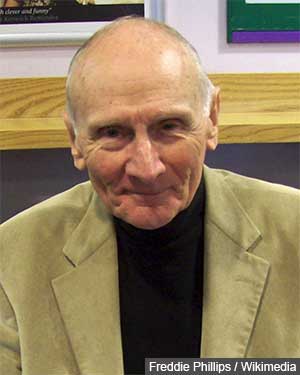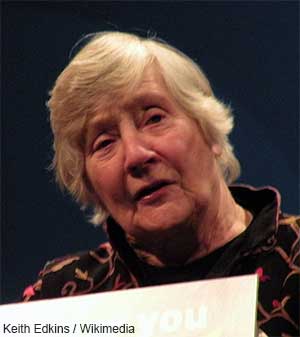Commuting days until retirement: 61
So far, I haven’t got to see the film I mentioned – the one I prepared for by reading Testament of Youth and writing about it in the last post. Infuriatingly, my local cinema and all the others in the area were showing it only around lunch time on weekdays. Obviously whoever decides these things had put it down as a film for old ladies. If it were a few months further on I’d be retired, and would be able to consider myself an honorary old lady, buttoning up my overcoat and toddling round to the picture house for a couple of hours of sedate entertainment. As it is I’ll probably wait and see it on DVD, Netflix or whatever.
But in fact I’m not at all in the habit of thinking of myself as an old gentleman, let alone an old lady. A few months ago I went to see a medical specialist about a minor but painful condition (happily temporary, as it turned out). I got my copy of his letter to the GP, which started: ‘I saw this 66 year old gentleman…’. My immediate reaction was: ‘Who can he be talking about? Have I got the wrong letter?’
But no – it came home to me that the way the world sees you isn’t often the way you think of yourself. But does anyone now think of themselves as a ‘gentleman’? A hundred years ago they certainly would have done; and the doctor’s letter shows that it’s still a formal, polite way of referring to someone who has at least reached middle age. But to think of yourself in that way seems like divorcing yourself from the contemporary world and consigning yourself to a time-warped existence.
My current train reading has in fact reminded me all too sharply of how distant in time my origins now are. It’s another piece of autobiography, of the Oxford English professor and literary pundit John Carey – The Unexpected Professor. He’s a good deal older than me – he was born in the 1930s – but there was so much in his early life which struck a chord with me.
I remember, as he does, the sorts of books that we were given by well-meaning adult relatives, with titles like 101 Things a Boy Can Do. (You could also find collections of Things a Girl Could Do, but, needless to say, they were very different.) There’s a particular phrase that always cropped up in those books which has stayed with me ever since. These masculine activities usually involved some sort of construction project which required certain outlandish components which were always ‘obtainable from any good ironmonger for a few pence.’
Reading about Carey’s boyhood, it was with a delighted shock of recognition that I found he had remembered exactly the same phrase. Like me, he wasn’t exactly sure what was meant by ‘ironmonger’. The most likely candidate in my area was a hardware shop called Mence Smith, where my queries about these unlikely items would be met with blank stares. So maybe it was a Bad Ironmonger – if it was an ironmonger at all, that is.
Another memory I share with him from that time is of the encyclopedias of the time; the very word, in the Internet age, has a dated ring to it. The most prosperous households would own the authoritative, and impossibly expensive, Encyclopedia Britannica, but most of the families I knew had a less prestigious set, usually dating from before the war, with grainy black and white illustrations and text that impressed on the reader how clever and enlightened the ‘modern’ world was, and how abjectly primitive our dim and distant forebears. I particularly remember a picture of the very latest in steam locomotives busily chuffing down the main line, with the breathless caption ‘A Mile a Minute!’ Today, sixty miles an hour is the speed of the average motorway dawdler.
And encyclopaedias make me think of a strange, shadowy business movement that was in its heyday some years back. It was based on sales people going from door to door selling encyclopedias – at one time they seem to outnumber even Jehovah’s Witnesses. I once got a telling glimpse of how this worked when, between a college course and a regular job, I was looking for an opportunity to earn something and saw a newspaper ad inviting people to a meeting about some potential work. Encyclopedia selling was what it turned out to be. A roomful of people was addressed by a sharply suited, rather too plausible sounding character, who asked people for guesses as to what they would earn for selling a single set. There were hesitant tries. ‘One pound?’ ‘Two pounds?’ (This was the 1960s – you can multiply the amounts by about 16 for today’s prices.) ‘No,’ he eventually said triumphantly. ‘TWENTY pounds!’
Most of his audience were now slavering like Pavlov dogs, as he had intended, and seemed not to have drawn the obvious conclusion that this meant the encyclopedias were very difficult to sell indeed; and given that it was commission only, and that I would probably be the world’s worst salesman, I knew it would dispiriting and dreadful. He invited anyone who was perverse enough still to be uninterested to leave, and only two of us out of 40 or 50 did. I was reflecting what sort of organisation it was that gleefully duped its own employees.
Some years earlier, as a child, I’d had a glimpse of this from the other side. A new set of encyclopedias, The Children’s Britannica, appeared in our house. It seemed that my father, not usually a soft touch, had bought them on the doorstep. Much later on I heard my mother’s account – that it had been an attractive young woman who was selling them. I doubt if he would have succumbed if it had been a man.
Returning to Professor Carey, I’m now about halfway through his book, hearing about his university career and greatly enjoying tracing his steps as he explored the canon of literature. He’s giving me plenty of ideas for future reading. As a memoir it’s altogether more relaxed than Testament of Youth; he has a gently humorous, self-mocking style that’s light years away from the committed, stormy intensity of Vera Brittain. What they have in common is Oxford; what they don’t have in common is close experience of the pain and loss of war. A child in the Second World War, the nearest Carey got to that was a spell of peacetime ‘National Service’ in the army, which everyone of his generation had to do (I was part of the first generation that didn’t have to). So the difference in tone is entirely understandable; but I recently read an interview with Vera Brittain’s daughter, Shirley Williams, in which she admitted that her mother had no great sense of humour.
And, come to think of it, there’s a significant point of contrast between Shirley Williams and her near contemporary John Carey. Carey makes pointed references in his foreword, and repeatedly in the book, to his utter disapproval of the closing down of grammar schools in the UK. (For those unused to the confusing English terminology, grammar schools are state funded and select by ability, while ‘public schools’, referred to below, are privately funded independent schools where most richer people send their children.)
One thing that has not changed is that Oxford – and Cambridge – still take vastly disproportionate numbers of public-school students. This is often blamed on Oxford and Cambridge. The blame, however, lies with those who destroyed the grammar schools. Selecting for merit, not money, the grammar schools, had they survived, would by now have all but eliminated the public-school contingent in Oxford and Cambridge, with far-reaching effects on our society. This book is, among other things, my tribute of gratitude to a grammar school.
It was the Labour administrations of the 60s and 70s who put this policy in place, with egalitarian intentions but a strange failure to anticipate the consequences. Shirley Williams, who was a minister of education in the 70s, had a central role in implementing the policy, and still strongly believes it to have been right. Carey, as the above passage shows, was a working class boy – no ivory tower elitist but a perfect exemplar of those who benefited from the grammar school system. One scene from his book nicely encapsulates his outlook: during his spell in the army he has a trip in a small plane in Egypt. The pilot makes a detour to give the passengers an aerial view of the pyramids. Rather than being bowled over by their grandeur, Carey is thinking of the slaves who built them, and the tendency of humanity throughout history to separate itself into a pampered elite and huge, suffering underclass.
So in Carey and Williams we have two open, attractive personalities, both with strongly expressed, left-leaning views, who are diametrically opposed over this point. I’d like to hear them debate it (I’m with Carey).
One final, unconnected point. My reading between the two autobiographical works of Vera Brittain and John Carey was David Mitchell’s latest novel The Bone Clocks. Both the two memoirs look back to earlier periods of scarcer resources and greater austerity. The Bone Clocks ends in 2043, when climate change and dwindling energy sources are eating away at the comforts we now take for granted, and the characters are wistfully remembering an era of greater plenty. I’m hoping for a long retirement, of course – but perhaps not too long.





